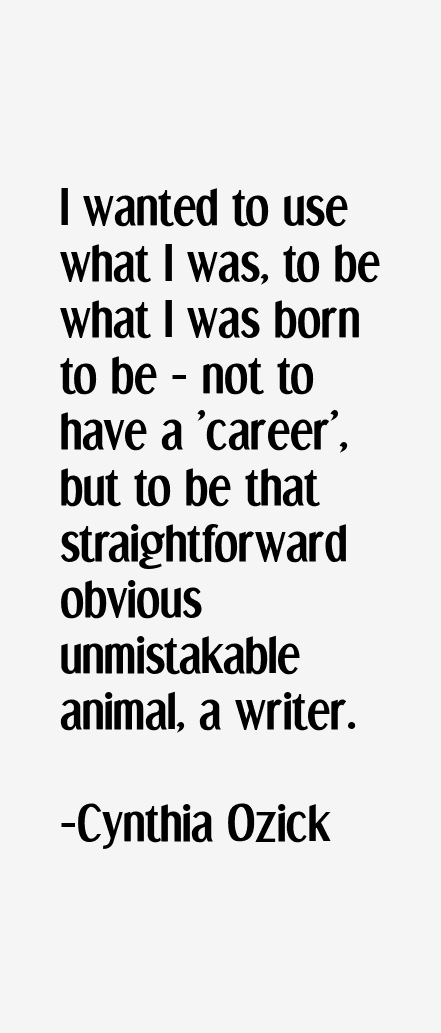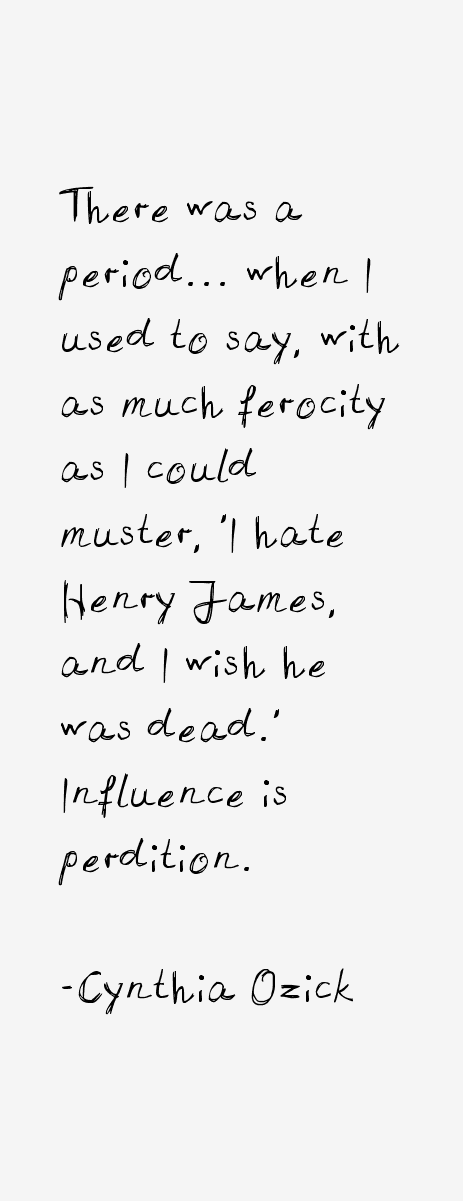Cynthia Ozick Quotes & Sayings (Page 5)
Cynthia Ozick quotes and sayings page 5 (novelist). These are the last 9 out of 49 quotes we have.

“I wanted to use what I was, to be what I was born to be - not to have a 'career', but to be that straightforward obvious unmistakable animal, a writer.”

“There was a period... when I used to say, with as much ferocity as I could muster, 'I hate Henry James, and I wish he was dead.' Influence is perdition.”
“To be a Jew is an act of the strenuous mind as it stands before the fakeries and lying seductions of the world, saying no and no again as they parade by in all their allure. And to be a writer is to plunge into the parade and become one of the delirious marchers.”
“When I say that George Eliot has long been my hero, I mean to include those aspects of her thought and temperament that have been disparaged or dismissed or ignored. She was, after all, a novelist who did not eschew politics or polemics - sometimes silently though defiantly, as in her relationship with George Henry Lewes.”
“I have lost stories and many starts of novels before. Not always as punishment for 'telling,' but more often as a result of something having gone cold and dead because of a hiatus. Telling, you see, is the same as a hiatus. It means you're not doing it.”
“I think it is serious to have good sales. As I learned belatedly, the more you sell, the more publishers pay attention to you, and it took me a very long time to figure that out because I never thought that way.”
“If I've ever regretted anything, it was putting all my eggs in one basket, holing up and kneeling at the altar of literature, instead of going out and at least reviewing, running around and trying to write for magazines. That would've been the intelligent thing to do, but I didn't, and that was because of fanaticism.”
“Sometimes writing has to be forced. In starting out, the shape and timbre and texture of what is to come is an uncertain chimera shimmering from behind a veil. You must not wait, loiter, dilly-dally. You must force your way painfully through.”
“Whoever utters 'Kafkaesque' has neither fathomed nor intuited nor felt the impress of Kafka's devisings. If there is one imperative that ought to accompany any biographical or critical approach, it is that Kafka is not to be mistaken for the Kafkaesque.”
Cynthia Ozick Quotes Rating
No Ratings Yet
Leave A Comment
























